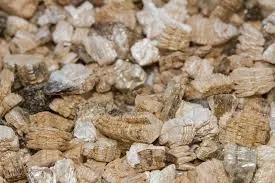Jul . 26, 2024 15:04 Back to list
Optimizing Lightweight Concrete Using Superior Quality Aggregate for Enhanced Structural Performance and Sustainability
High-Quality Aggregate for Lightweight Concrete
In recent years, the construction industry has continuously sought innovative materials to enhance the performance and sustainability of concrete structures. Among these advancements, the development of lightweight concrete using high-quality aggregates has emerged as a crucial area of research and application. Lightweight concrete offers numerous benefits, including reduced dead weight, lower transportation costs, improved thermal insulation properties, and enhanced workability. This article explores the significance of high-quality aggregates in the formulation of lightweight concrete, the types of aggregates available, and their impact on concrete properties.
The Importance of High-Quality Aggregates
Aggregates play a pivotal role in determining the mechanical and physical properties of concrete. For lightweight concrete, the selection of high-quality aggregates is essential to achieve the desired balance of strength, durability, and workability. High-quality aggregates are characterized by their uniform particle size, low water absorption, and high resistance to weathering and chemical attack. When incorporated into concrete, these aggregates not only contribute to the overall performance of the mix but also enhance its longevity and resilience.
Types of Lightweight Aggregates
Several types of aggregates can be classified as lightweight, including natural lightweight aggregates, expanded clay, expanded polystyrene beads, and recycled materials
. Each of these aggregates presents unique properties and advantages.1. Natural Lightweight Aggregates These aggregates, such as pumice or scoria, are derived from volcanic rocks and exhibit low density and excellent insulating properties. Their natural variation and availability can make them an economical choice for specific applications.
2. Expanded Clay Aggregates Producing expanded clay aggregates involves heating clay to extreme temperatures, causing it to expand and form lightweight pellets. These aggregates are known for their uniformity, high strength, and excellent thermal insulation properties, making them a popular choice in lightweight concrete formulations.
high quality aggregate for lightweight concrete

3. Expanded Polystyrene Beads These beads are synthesized from polystyrene and serve as an excellent lightweight aggregate alternative. Their low thermal conductivity makes them ideal for applications requiring additional insulating properties, such as in floor slabs and roof structures.
4. Recycled Materials The use of recycled aggregates, such as crushed concrete or glass, contributes to sustainability by reducing waste and conserving natural resources. While they may not be classified as lightweight in all cases, with careful processing and selection, recycled materials can effectively enhance the properties of lightweight concrete.
Impact on Concrete Performance
Incorporating high-quality lightweight aggregates into concrete mixes can significantly improve various performance metrics. The low density of these aggregates results in a reduction of the overall weight of the concrete, which is particularly beneficial for large structural elements or multistory buildings. This weight reduction can lead to lower foundation costs and more efficient transportation.
Furthermore, lightweight concrete provides excellent thermal insulation, improving energy efficiency in buildings. This is especially relevant in a world increasingly focused on sustainability and reducing carbon footprints. Additionally, the improved workability of lightweight concrete can lead to enhanced aesthetic finishes and easier handling on construction sites.
Conclusion
High-quality aggregates are an essential component of lightweight concrete, influencing its performance and application in modern construction. With the continued advancements in material science and a growing emphasis on sustainable practices, the use of innovative lightweight aggregates will likely gain momentum. The shift towards high-quality aggregates not only enhances the structural integrity and functionality of concrete but also aligns with global efforts to develop more sustainable and efficient building materials. As the construction industry evolves, the capabilities offered by lightweight concrete will play a pivotal role in shaping a more efficient and environmentally friendly future.
-
Eco-Friendly Granule Covering Agent | Dust & Caking Control
NewsAug.06,2025
-
Fe-C Composite Pellets for BOF: High-Efficiency & Cost-Saving
NewsAug.05,2025
-
Premium Tundish Covering Agents Exporters | High Purity
NewsAug.04,2025
-
Fe-C Composite Pellets for BOF | Efficient & Economical
NewsAug.03,2025
-
Top Tundish Covering Agent Exporters | Premium Quality Solutions
NewsAug.02,2025
-
First Bauxite Exporters | AI-Optimized Supply
NewsAug.01,2025
